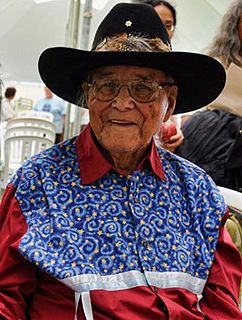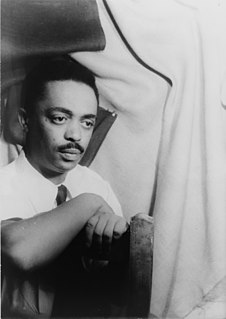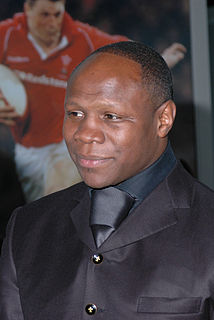A Quote by Margaret Mead
The young, free to act on their initiative, can lead their elders in the direction of the unknown... The children, the young, must ask the questions that we would never think to ask, but enough trust must be re-established so that the elders will be permitted to work with them on the answers.
Related Quotes
In the time of the seventh Fire new people will emerge. They will retrace their steps to find what was left by the side of the trail long ago. Their steps will take them to the Elders, who they will ask to guide them on their journey. But many of the Elders will have fallen asleep. They will awaken to this new time with nothing to offer. Some of the Elders will be silent out of fear. But most of the Elders will be silent because no one will ask anything of them.
Even very recently, the elders could say: 'You know, I have been young and you never have been old.' But today's young people can reply: 'You never have been young in the world I am young in, and you never can be.' ... the older generation will never see repeated in the lives of young people their own unprecedented experience of sequentially emerging change. This break between generations is wholly new: it is planetary and universal.
There must be no barriers to freedom of inquiry... There is no place for dogma in science. The scientist is free, and must be free to ask any question, to doubt any assertion, to seek for any evidence, to correct any errors. Our political life is also predicated on openness. We know that the only way to avoid error is to detect it and that the only way to detect it is to be free to inquire. And we know that as long as men are free to ask what they must, free to say what they think, free to think what they will, freedom can never be lost, and science can never regress.
Perhaps I may record here my protest against the efforts, so often made, to shield children and young people from all that has to do with death and sorrow, to give them a good time at all hazards on the assumption that the ills of life will come soon enough. Young people themselves often resent this attitude on the part of their elders; they feel set aside and belittled as if they were denied the common human experiences.
"Did God have a mother?" Children, when told that God made the heavens and the earth, innocently ask whether God had a mother. This deceptively simple question has stumped the elders of the church and embarrassed the finest theologians, precipitating some of the thorniest theological debates over the centuries. All the great religions have elaborate mythologies surrounding the divine act of Creation, but none of them adequately confronts the logical paradoxes inherent in the question that even children ask.



































